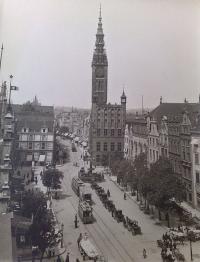My German origin was a problem
He was born in 1930 in the village called Łowin near Pruszcz Pomorski as a son of a German woman and Polish man of German descent. At home the family was speaking in German. Before the war and during it he belonged to the scouting. During the war his brother was fighting in the Eastern Front as a Wehrmacht soldier. His father also served in Wehrmacht as a German railway worker. In the winter 1945, Paweł Sabiniarz and his mother escaped to Westphalia. After 2 years they came back to Poland where the father and a brother of him were as well. They started to live in Kwidzyn. Paweł Sabiniarz graduated a private high school there and then went to Gdansk to continue his studying in Technical Departments. After finishing this school he started to work in Gdańsk Shipyard and began evening classes at Gdańsk University of Technology. He worked as a manager of production department in Gdańsk Shipyard. He was dealing with international affairs in Federation of Shipbuilding. In the early 70’s he joined The Polish United Workers’ Party (PUWP) in order to sail on international ships. In 1982 he quitted the PUWP. From 1980 to 1986 he worked on German ships as an electrician. He retired when he was 60. In 1999 he got involved in the activity of German Minority. Now he is a chair of county department of German Minority in Gdańsk and a board member of The Association of German Minority in Poland. He has a wife and a daughter. He lives in Gdańsk.
